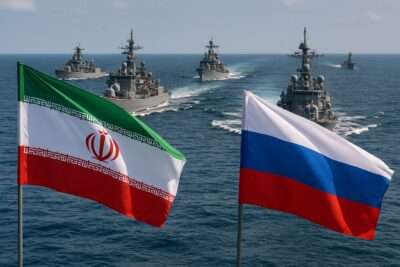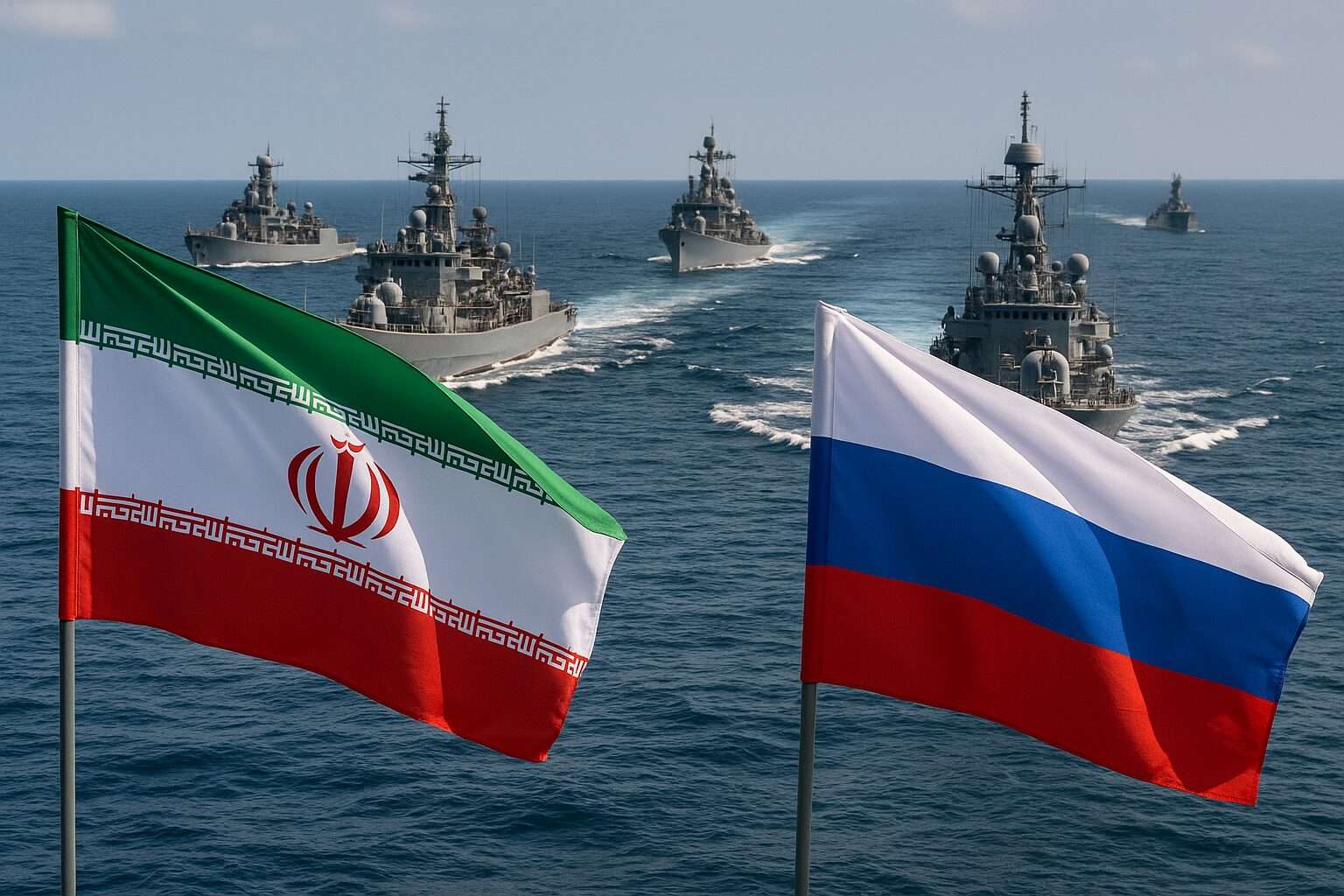
Executive Summary
Russia and Iran’s joint naval exercise, CASAREX 2025, in the Caspian Sea, strongly asserts their military presence in the strategically important region.
This operation shows Moscow and Tehran’s capacity for maritime security and rescue operations, strengthening their control of the Caspian Sea region.
An increasing Russian-Iranian military presence and coordination in the region could challenge Azerbaijan’s regional position, given the existing tensions, complex foreign relations, and the country’s balancing act between the West and its ties to Russia and Iran.
The exercise can further limit the operational space for external intelligence activities, reinforcing Moscow and Tehran’s influence over security arrangements.
Key Takeaways
CASAREX 2025 shows enhanced military cooperation between Russia and Iran, consolidating their naval presence in the Caspian Sea.
Moscow and Tehran can also use this naval exercise to warn Azerbaijan against interference and assert their regional dominance.
Closer ties between Russia and Iran are limiting opportunities for foreign intelligence agencies.
Background Information
The CASAREX 2025 maritime rescue and relief exercise began on 21 July 2025 in the Caspian Sea, hosted by the Iranian Army Navy’s northern fleet. The Iranian Navy, Islamic Revolution Guards Corps Navy, and Law Enforcement Command, along with the Russian Navy, participate, and observers from other Caspian littoral states are also present.
This three-day exercise simulates maritime emergencies to improve regional safety and cooperation between participating navies. Official statements highlight the exercise’s theme, “Together for a safe and secure Caspian Sea,” with objectives centred on upgrading maritime security and strengthening cooperation among the Caspian countries.
Geopolitical Scenario
CASAREX 2025 highlights the growing combined Russian and Iranian influence in the Caspian Sea, a region with uneven power distribution among bordering countries.
Russia and Iran hold significant naval capabilities compared to Azerbaijan, Kazakhstan, and Turkmenistan. This military collaboration has both practical and symbolic value, demonstrating their capacity for managing maritime events and projecting power.
The growing Russian-Iranian presence hampers Azerbaijan’s complex foreign policy, balancing its economic reliance on Russia and Iran with its desire for closer ties to the West.
The Israeli-Iranian conflict strained Azerbaijani-Iranian relations, fuelled by accusations of Baku aiding Israeli intelligence and military actions; however, the Iranian president’s visit to Stepanakert for the ECO Summit hinted at a potential diplomatic thaw.
Recent controversies, including arrests of Azerbaijanis in Russia and Russians in Azerbaijan, have strained relations between Moscow and Baku.
Considering Iran and Russia’s relationship with Azerbaijan, and the current regional geopolitical climate, this military exercise could also be a warning against outside interference and send a direct message to Baku.
The growing dominance of Moscow and Tehran in the Caspian basin might concern outside observers, including NATO, who see it limiting Western influence and military freedom of action.
Indicators to Monitor
Increase in joint naval exercises or expanded scope of CASAREX beyond maritime rescue to include combat or interdiction drills.
Azerbaijan’s changes in diplomatic or military posture in response to Russia-Iran exercises, such as increased Western engagement or military acquisitions.
Heightened intelligence or counterintelligence activity reported in the Caspian region, particularly involving foreign agencies.
Changes in Russian and Iranian naval deployments, including the establishment of permanent bases or improved infrastructure, are occurring along the Caspian coast.
Responses from other Caspian littoral states to the Russian and Iranian military presence include public statements and policy shifts.
Conclusion
CASAREX 2025 affirms Russia and Iran as the principal military actors in the Caspian Sea, reinforcing their strategic presence through joint operations.
This action reveals Azerbaijan the boundaries of its regional influence and discourages outside interference, especially from intelligence agencies linked to Israel and the West.
Close monitoring of Russian-Iranian collaboration in the Caspian Sea is necessary to understand future shifts in regional security and to anticipate the implications for littoral states and external stakeholders.

SpecialEurasia Co-Founder & Managing Director. She is an International affairs specialist, business consultant and political analyst who has supported private and public institutions in decision-making by providing reports, risk assessments, and consultancy. Due to her work and reporting activities, she has travelled in Europe, the Middle East, South-East Asia and the post-Soviet space assessing the domestic dynamic and situations and creating a network of local contacts. She is also the Director of the Energy & Engineering Department of CeSEM – Centro Studi Eurasia Mediterraneo and the Project Manager of Persian Files. Previously, she worked as an Associate Director at ASRIE Analytica. She speaks Italian, English, German, Russian and Arabic. She co-authored the book Conflitto in Ucraina: rischio geopolitico, propaganda jihadista e minaccia per l’Europa (Enigma Edizioni 2022).
